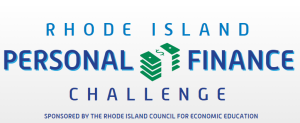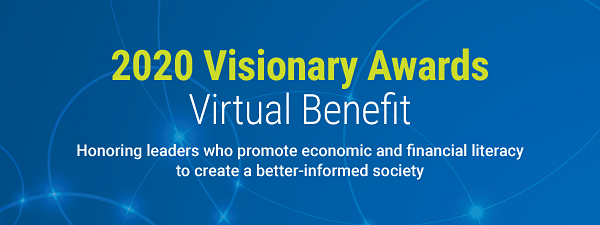8th Annual Global Economic Symposium was a Great Success!
The 8th Annual Global Economic Symposium (GES) was held virtually on Friday, March 25th. Thanks to the technical support from Brightcove, a Boston-based video platform company and the extended network of Blacks on Wall Street, this year’s program included schools from Chicago, the District of Columbia, and New Orleans to compete with the legacy teams from Massachusetts, New York, Rhode Island and Texas.
Student teams from high school and middle school with the assistance of mentors from Bridgewater State University, Northeastern University and Bentley University identified a global issue, researched nations that were most impacted by the issue and nations that had success in addressing the issue and as a result, provided a recommendation on a policy, practice or action that they felt could help mitigate the impact of this global issue.
In the weeks leading up to the Global Economic Symposium, student teams produced short videos to highlight their analysis of the problem and their proposed solutions. On the day of the event, their 5-minute pre-recorded videos were shown to panels of judges consisting of distinguished experts in academia, industry, banking, and education. The students on each team then had opportunities to respond in real time to the judges’ questions.
At the conclusion of the event, the following schools and teams were selected by the judges for award recognition, based upon the quality of their research presentations and their responses to judges’ questions:
International Division (High School)
1st Place Energy Dependence East Greenwich High School, RI
2nd Place What About Our Health? Brockton High School. MA
3rd Place The Economic Strain of Prisons McDonogh 35 Senior High School, LA
4th Place Spreading awareness and finding
Solutions for clean water and sanitation Townview School of Business, TX
Global Division
1st Place Supply Chain Ashfield Middle School, MA
2nd Place Climate Change Ashfield Middle School, MA
Included in the programming of the day were two inspirational speakers.
In the morning we heard from keynote speaker, Loida Lewis, the wife of the legendary Reginald Lewis, who was the first black businessman to pull off a billion-dollar leveraged buyout and wrote the book: Why Should White Guys Have All the Fun? Ms. Lewis, a force to be reckoned with in her own right, chair, and chief operating officer for TLC Beatrice, LLC, concluded her speech with the following advice: “focus your lives on Goal setting, Obedience, and Determination”.
The day ended with another inspirational speech from Dr. Fred McKinney, recently retired Carlton Highsmith Chair for Innovation and entrepreneurship at the Lender School of Business at Quinnipiac University and former president and chief executive officer at the Greater New England Minority Supplier Development Council that advised students to: Think Big; Have a Dream’ Talk and Listen to People, particularly those outside your normal circle; Help Others; Stress Yourself, Not Others; Exercise. Eat Right and Love Yourself.
Here is the list of participating Schools:
Archbishop Carroll High School, Washington, DC
Ashfield Middle School. Brockton, MA
BASE Chicago, Chicago, Ill
Benjamin Franklin High School, Cambria, Heights, NY
Brockton High School, Brockton, MA
East Greenwich High School, East Greenwich, RI
John Philip Sousa <idle School, Washington, DC
McDonogh 35 Senior High School, New Orleans, LA
Townview School of Business and Management, Dallas, TX
The supervising educators who helped make this all happen:
Sam Anderson
Sherrell Tolbert Batts
Tiffany Banks Brown
Peter Czymbor
Matthew Genua
Donald Hess
Jamison Martin
Kevin Miles
Michelle Ming
Dr. Patricia Page
Cedric Turner
Judges
Nelia Arruda
Camille Baerga
Doug Banks
Richard Ciarletta
Robert DeLuca
Martin Dias
Meredith Duhaime
Alexis Fennoy
‘Scott Glasgow
David Gulley
Moon Han
Brian Hannon
Blaire Horner
Charles Hudson
Prakash Koirala
Christopher McHugh
Ethan Powell
Kevin Ruth
Joanne Schneider
James Steele
Scott Stephenson
Laura Young
Volunteers
Austin Barber
Sara Barber
Elizabeth Beckett
Parker Byron
Finesse Carter
Alix Holder
Jackie Anne Joseph
Barbatt Jocelyn
Lisa Rodriques
Petroy Thompson
Michael Turner
The generous support of the following sponsors made the Global Economic Symposium available free of charge to all participating students and schools
Platinum Sponsors:
Blacks on Wall Street
Brightcove
EmpowerYourself
Gold Sponsors
Eastern Bank
Give-Get
Bronze Sponsors
Bank 5
Bridgewater State University
Council for Economic Education
The Global Economic Symposium creators are Mr. Cedric Turner, Mr. George “Scott” Scott Guild, Dr. Margaret Brooks, Dr. Patricia Page, Mr. Bob Barber and the co-collaborators: from Blacks on Wall Street: Mr. Dennis Creary, Ms. Stephanie Barimah



